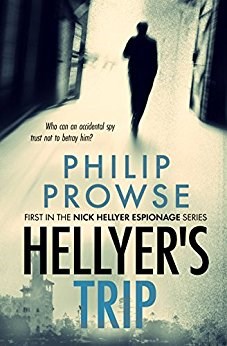Is There Life after ELT? Why Branch out into Espionage Fiction?
Philip Prowse, UK

We ask Philip Prowse why he has branched out into espionage fiction.
Did you always want to be an author?
Well, I was pretty hopeless at school. Once, our teacher told us to write a story in slang, and I did so with enthusiasm. But her feedback was less than positive. ‘I said slang, Prowse. Not filthy four-letter swearwords!’
That really wasn’t an answer to the question.
Fair enough. I don’t think I did. Reading English at Cambridge and editing a poetry magazine must have rubbed off on me, but it wasn’t until Egypt in the late sixties that I realised I could write. I started by adapting texts to help my students understand them better. Later in Portugal I wrote my first novel on a sit-up-and-beg manual office typewriter. And realised that this was what I wanted to do. I’m still creating stories – though the technology has moved on.
Until recently the audience for your fiction has been learners of English.
Yes, and I’ve been fortunate in that graded readers are vastly popular. For example, The Woman Who Disappeared (Macmillan) has sold well over a million copies and both Why? and Arman’s Journey (Cambridge University Press) have won Language Learner Literature Awards.
In what ways has your background helped or hindered you in writing full-length novels?
As the Series Editor of Cambridge English Readers, with nearly a hundred titles published, I learned a great deal about crafting a narrative and developing characters within confined boundaries. But now that I’ve let myself off the linguistic leash I’ve also had to ‘unlearn’ some of the same skills.
‘Unlearn’?
For example, in writing for language learners you need to make everything clear and explicit, but adult fiction thrives on inference and ambiguity. The reader interacts with the author in re-creating and interpreting the text.
And why espionage fiction?
I’ve spent a third of my working life overseas, and have always relished moments when I was taken for a local. The duplicity of being and not being what you appear to be is seductive. After I returned to live in the UK I still travelled extensively worldwide, and inevitably came across people whose faces did not match their stories.
Do you mean they were spies? And were you one?
First question: probably. Second question: I signed the Official Secrets Act.
What next?
Hellyer’s Trip is now published, and I’m deep into the second book in the Nick Hellyer series.
For some more details here.



|